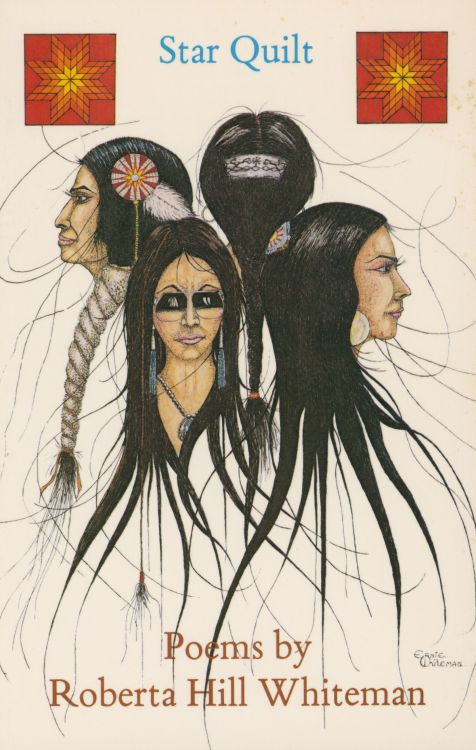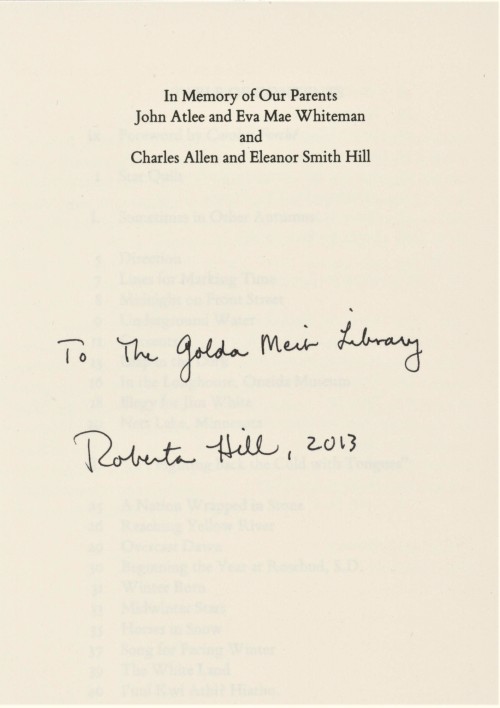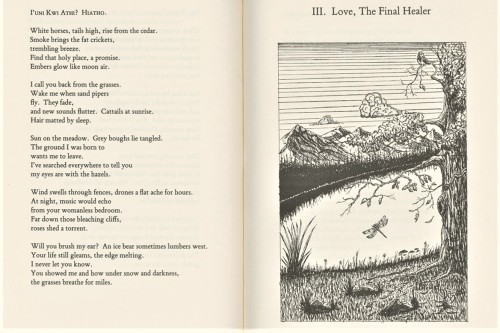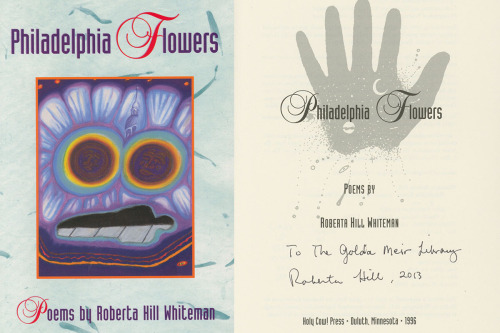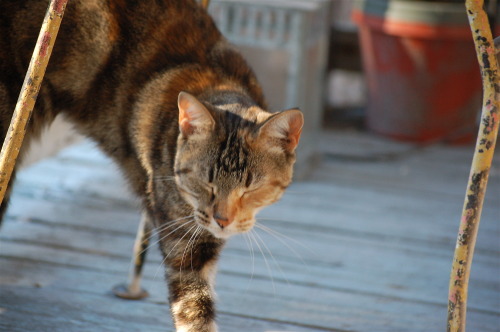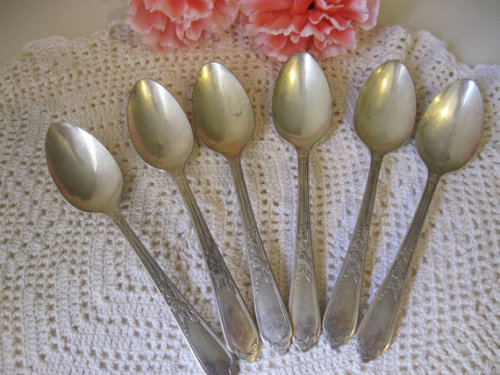#oneida
Quick facts:
The Oneida language in Oneida is Ukwehuwehnéha which translates to “the Native way” or “Native ways”
The Oneida language is spoken by Oneida people.
It is an north eastern Iroquoian dialect, and is very similar to the Mohawk language spoken by Mohawk peoples. (Some argue that they’re the same language just different dialects)
Oneida is an aboriginal nation and tribe, and is apart of an alliance with six other Iroquoian speaking nations called the Haudenosaunee Confederacy.
The Oneida language is critically endangered with around 200 native speakers of the language. Language revitalization efforts are in progress to save it.
If you have further questions about the Oneida language that wasn’t answered here, just send an ask and I’ll get back to you:) Nʌkiˀwah
Native American/First Nations Woman Writer of the Week
ROBERTA HILL
This week, we introduce you all to Roberta Jean Hill, formerly Roberta Hill Whiteman, a poet and educator native to Wisconsin! Born in 1947 near Green Bay, Roberta Hill grew up among the Oneida Indigenous peoples of Wisconsin, a rich heritage that enlightens her work as a poet and has driven her scholastic career. In her third poetry collection, Cicadas: New & Selected Poems, published by the Holy Cow! Press in 2013, Hill writes:
To the people, beings and places I love, named or unnamed, met and imagined. May they continue to inspire us to live and keep loving earth and her beings for all eternity.
UW-Milwaukee Special Collections preserves four signed presentation copies of Hill’s poetry books, all published by Jim Pearlman, founder and editor of Holy Cow! Press in Duluth, Minnesota, which is dedicated to publishing writers who live in the American Midwest and focuses on publishing Native American authors and thematic anthologies.
UWM Special Collections holds two copies of Hill’s first collection of poetry,Star Quilt, originally published in 1984 with foreword by poet, editor, professor, translator, and human rights advocate,Carolyn Forché. One is a first printing from 1984, signed in 2013 to our library, while the other is a second printing, illustrated and republished by the Holy Cow! Press in 1985, which is signed to Milwaukee poet and educator DeWitt Clinton.
The illustrations for both printings of Star Quilt were done by Hill’s husband, artist, director of First Nations Film and Video Festival, Inc, and member of theNorthernArapaho tribe,Ernest Whiteman. The cover art for the book is a portrait of a woman facing four ways, hinting at Roberta’s use of the four cardinal directions throughout the book that portray the separation and displacement that the Oneida peoples have experienced in a long history of forced migration by the U.S. government. Throughout the collection, Hill internalizes this feeling of loss and separation, utilizing an extended metaphor of dust in the winds returning to the Earth, from where the peoples are said to have come. The poem above, “I’uni Kwi Athi? Hiatho,” uses Hill’s father’s name, the meaning of which Hill says he never revealed.
In the glossary for Star Quilt, Hill tells the history of quilt making by Plains Indian women, which are designed with a central star for their children and grandchildren, stating, “it is a valuable possession, connecting the generations to one another and the earth.” Hill dedicates this collection to those who inspired her writing, “In Memory of Our Parents John Atlee and Eva Mae Whiteman and Charles Allen and Eleanor Smith Hill”.
Roberta Hill’s second collection, Philadelphia Flowers: Poems, published in 1996, carries many individual poems to and for family and friends, dedicating the collection to her three children, Jacob, Heather, and Melissa. The cover painting and illustrations for Philadelphia Flowers are again by Ernest Whiteman. Hill’s final and most recent collection, published in 2013, Cicadas: New & Selected Poems, reprints poems selected from Star QuiltandPhiladelphia Flowers and acts as a follow-up to her recent life experiences; including a longer individual poem dedicated to Hill’s late brother-in-law, “Ernie” Whiteman.
Also held by our department is a fine press printing of an excerpt of Roberta Hill’s poem, Your Fierce Resistance, published in 1993 by the Minnesota Center For Book Arts in conjunction with The Loft’sInroads: Writers of Color series. Be on the lookout for more on this beautiful production coming later!
After graduating with a BA from the University of Wisconsin-Green Bay, Hill earned an MA in fine arts from the University of Montana, and completed her PhD in American Indian Studies at the University of Minnesota. Hill’s doctoral thesis honors the work of her paternal grandmother,Dr. Lillie Rosa Minoka-Hill, through a biographical study of her life as the second American Indian woman to earn an M.D.in the U.S. Roberta Hill has held several academic positions and is Professor Emerita of English and American Indian Studies at the University of Wisconsin-Madison.
See other writers we have featured in Native American/First Nations Woman Writer of the Week.
–Isabelle, Special Collections Undergraduate Writing Intern
We acknowledge that in Milwaukee we live and work on traditional Potawatomi, Ho-Chunk, and Menominee homelands along the southwest shores of Michigami, part of North America’s largest system of freshwater lakes, where the Milwaukee, Menominee, and Kinnickinnic rivers meet and the people of Wisconsin’s sovereign Anishinaabe, Ho-Chunk, Menominee, Oneida, and Mohican nations remain present.
Author Portrait from the Library of Congress
Post link
Spirit Game: Pride of a Nation Trailer
There is a good chance that right now you are eating with silverware made from descendants of orgy loving, wife tradin, commies! These freaks weren’t your 1960’s dirty hippie either, try 19th century style. Onieda, the largest sellers of silverware goodness, began as The Onieda Community in 1848 by a horny hippie named, John Humphrey Noyes. One day he he had a dream, a dream that he would start a religious commune, to get those bonnet ladiesss. He convinced people that Jesus had returned and they were living in utopia. Jesus is back, its time to bang the day away! And bang they did, even coining the term “free love” in the process.
To make money for their lust filled commune they sold silverware, stylish palm frond hats, and some weird jarred jelly shit. No kidding. All was going well until, everybody got wrinkly and the leftover young didn’t wanna bang saggin oldies, so they eventually sold out and went uber corporate man!
-Nat Marx, B.A in History from Eckerd College (Our first guest author!!!)
Post link
Happy Wolfboy day!!!!!
I’m so excited I got to work on this This team was AMAZING to work with!! ✨☁️







Happy Veterans Day | Oneida Veterans Memorial | The Oneida have fought with the U.S. since the Revolutionary War. #veteransday #oneida #indigenousveterans #memorial #indigenousdesign #art #instaarchitecture #instaart #cornelius #archdaily #artifizi #archilovers #next_top_architects #architecture (at Oneida Veterans Memorial)
https://www.instagram.com/p/CHeBsfKsx9u/?igshid=1mogrvzmcia6f
Post link

